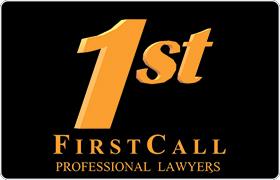Altadena DUI-DWI Lawyer, California
Sponsored Law Firm
-
 x
x

Click For More Info:
-
First Call Legal Services Corporation
530 Hacienda Dr Unit 101B Vista, CA 92081» view mapCriminal Defense Effective. Versatile. Decisive.
Our vision is to build strong, trust-based client relationships from our first handshake. Every challenge is an opportunity. You need the RIGHT PEOPLE for the job you want done.
760-690-3999
FREE CONSULTATION
CONTACTQuentin Burnell Simms
Landlord-Tenant, Traffic, Litigation, DUI-DWI
Status: Suspended Licensed: 33 Years
 First Call Legal Services Vista, CA
First Call Legal Services Vista, CA Practice AreasExpertise
Practice AreasExpertise
